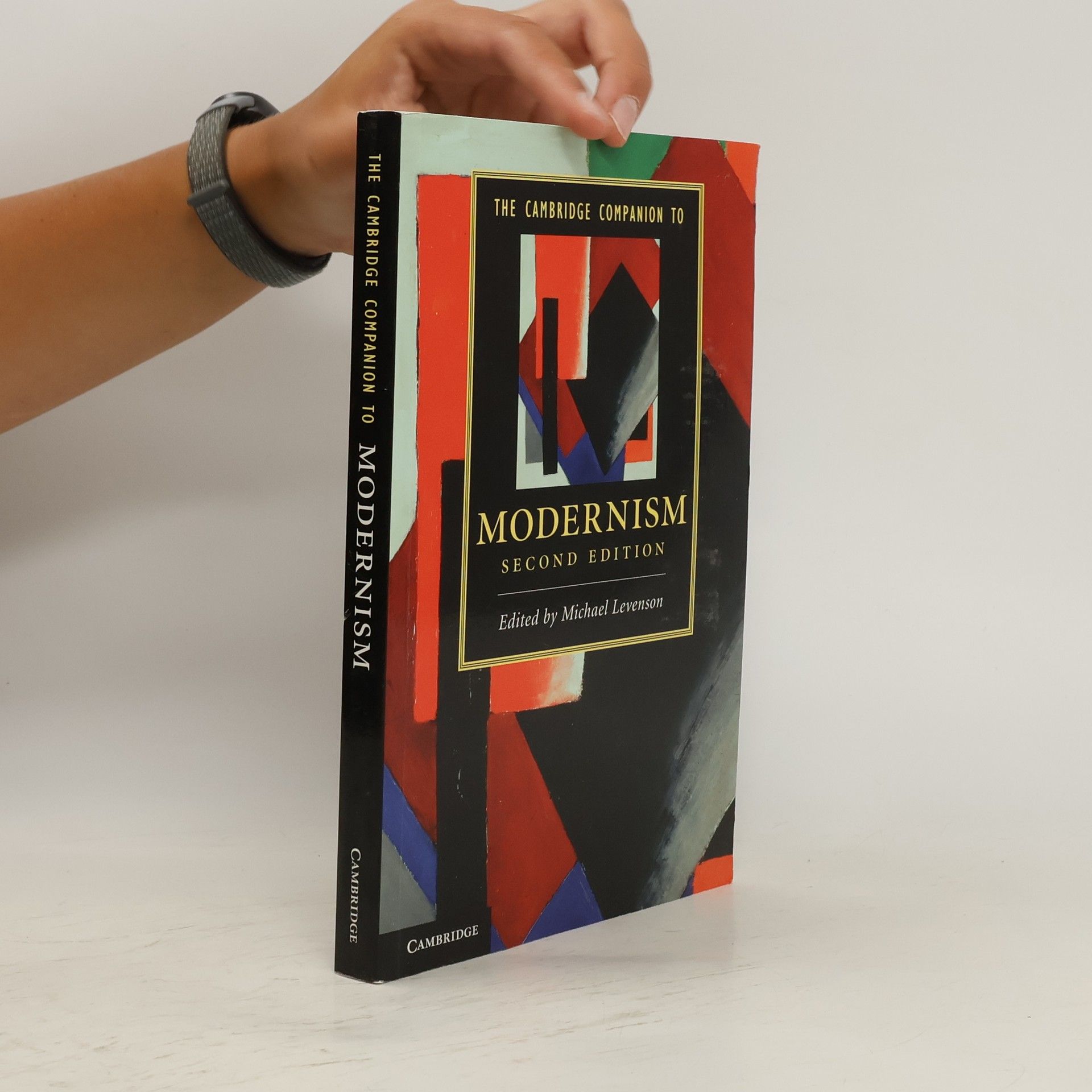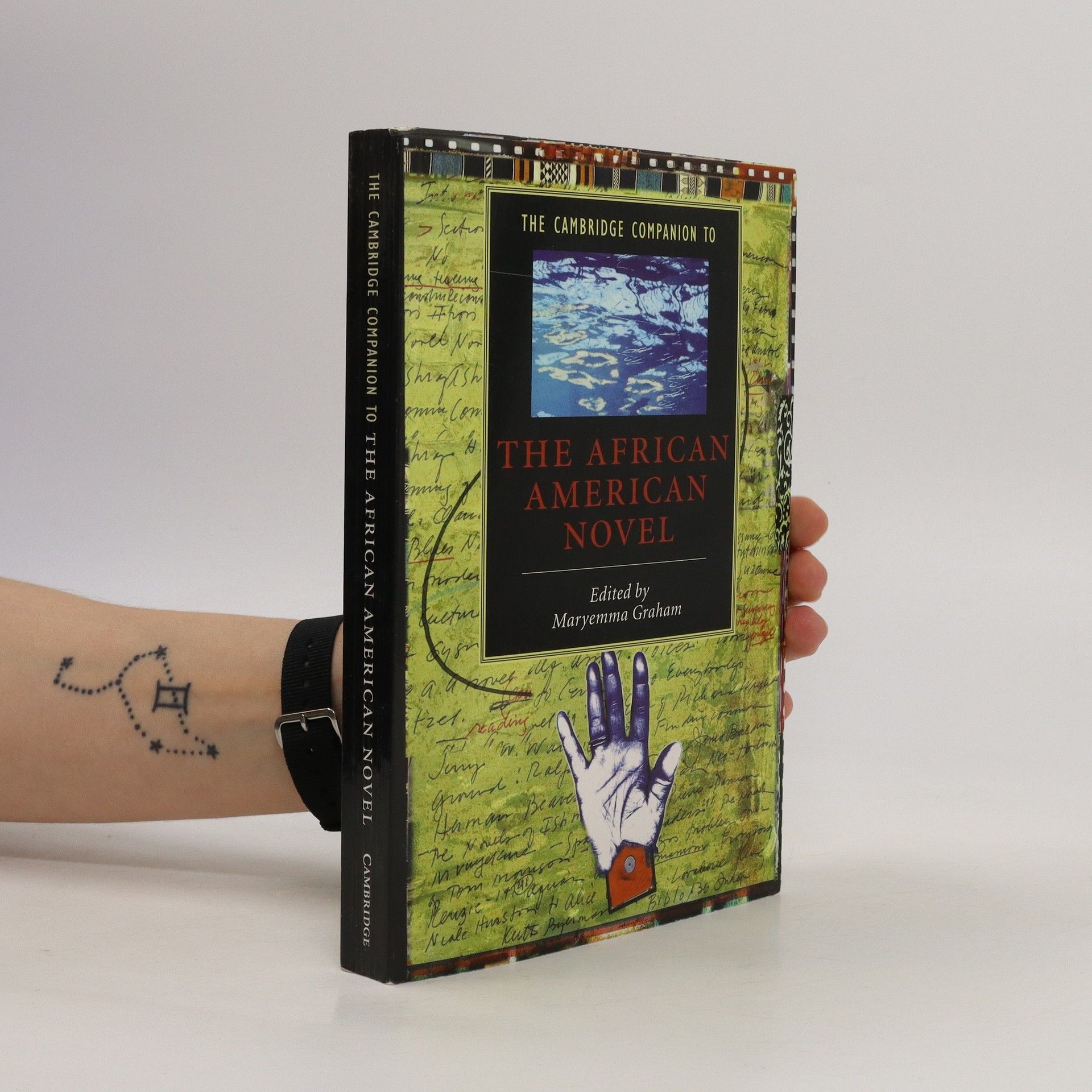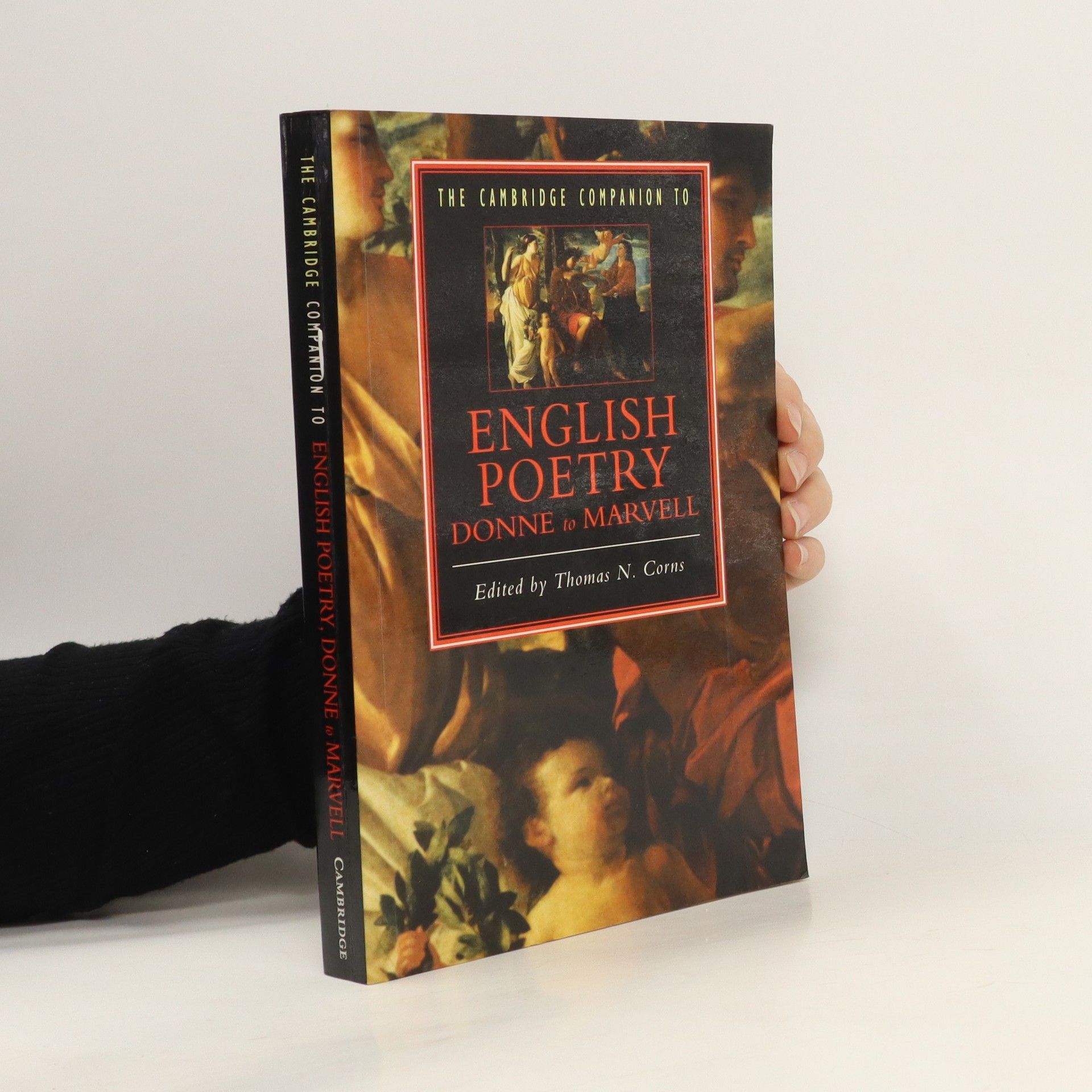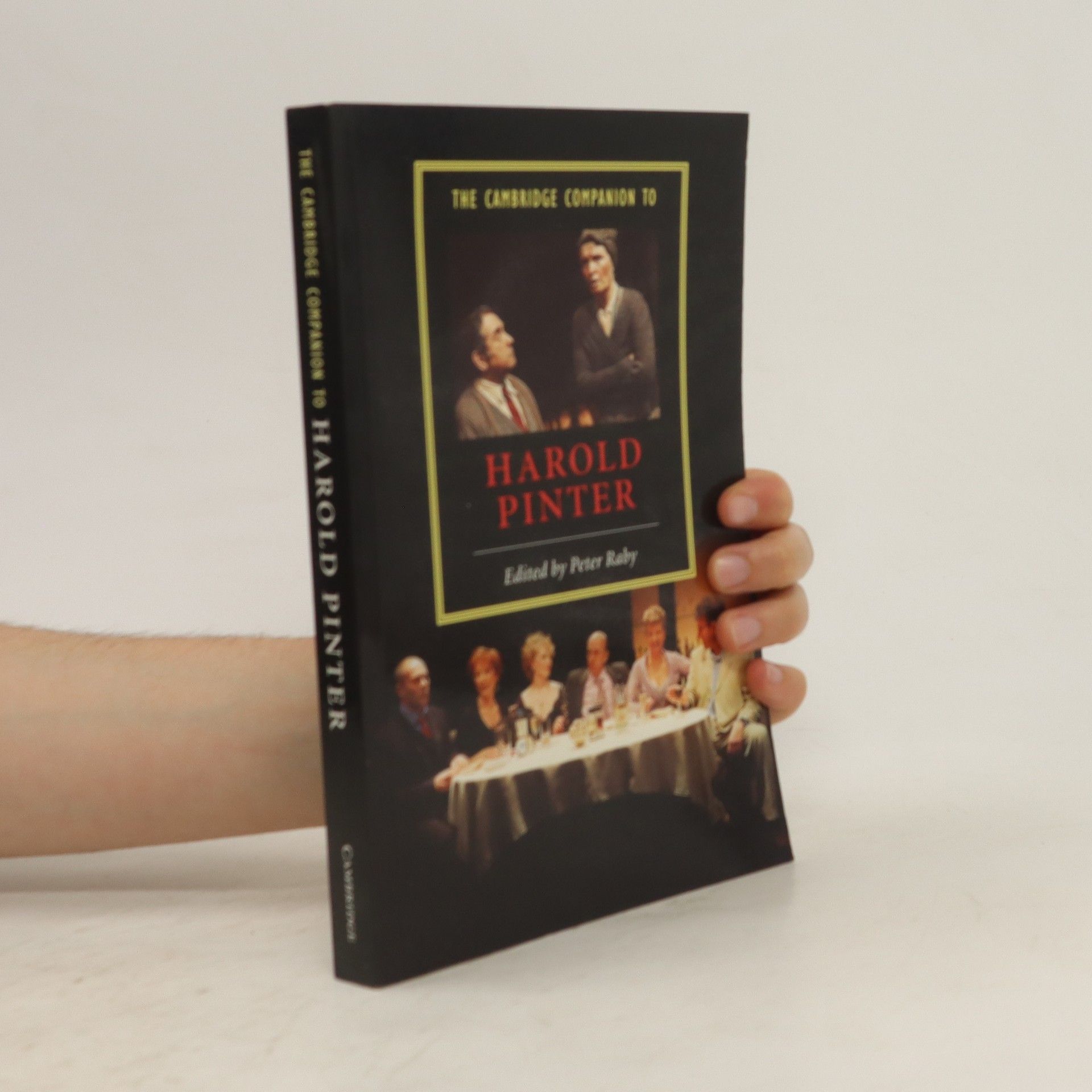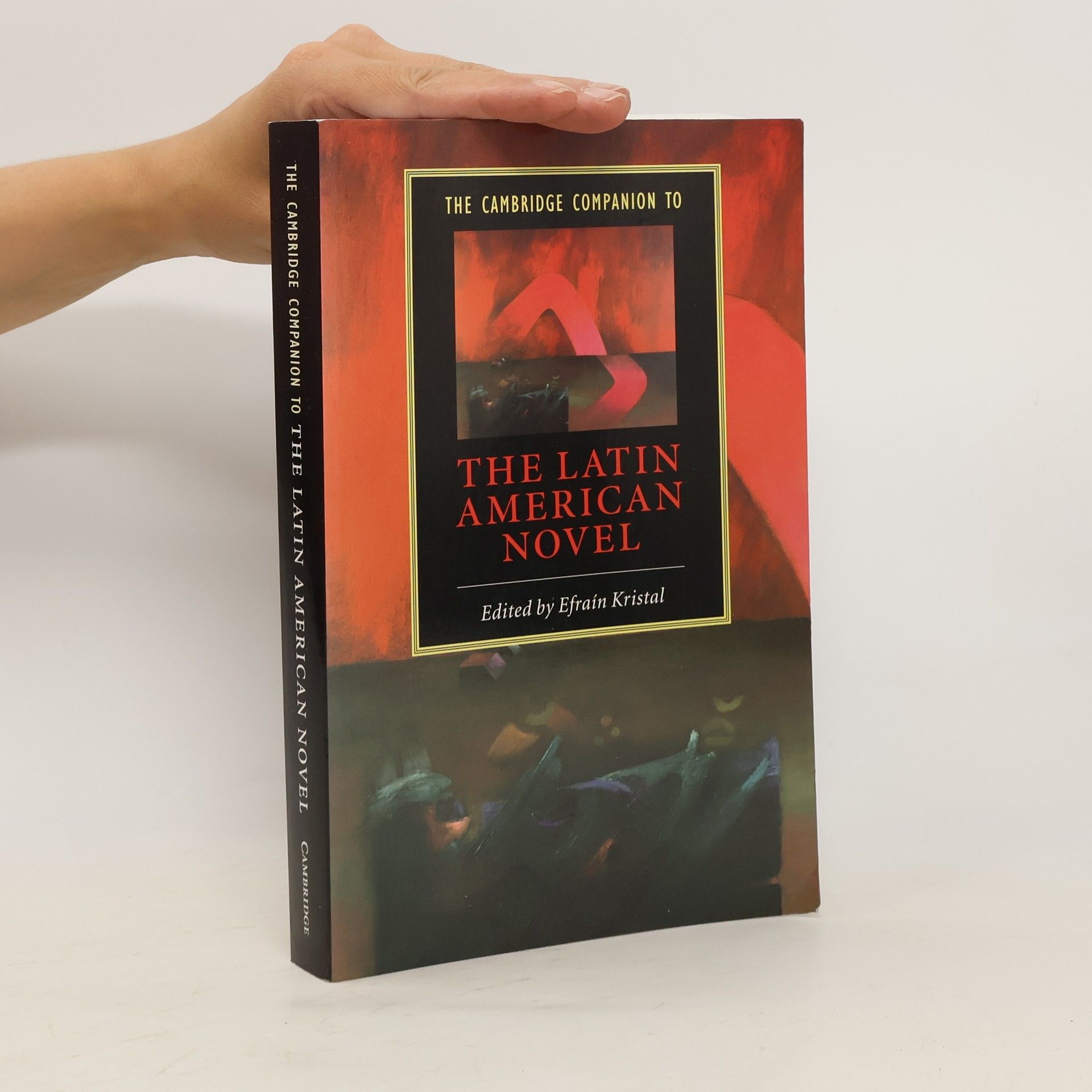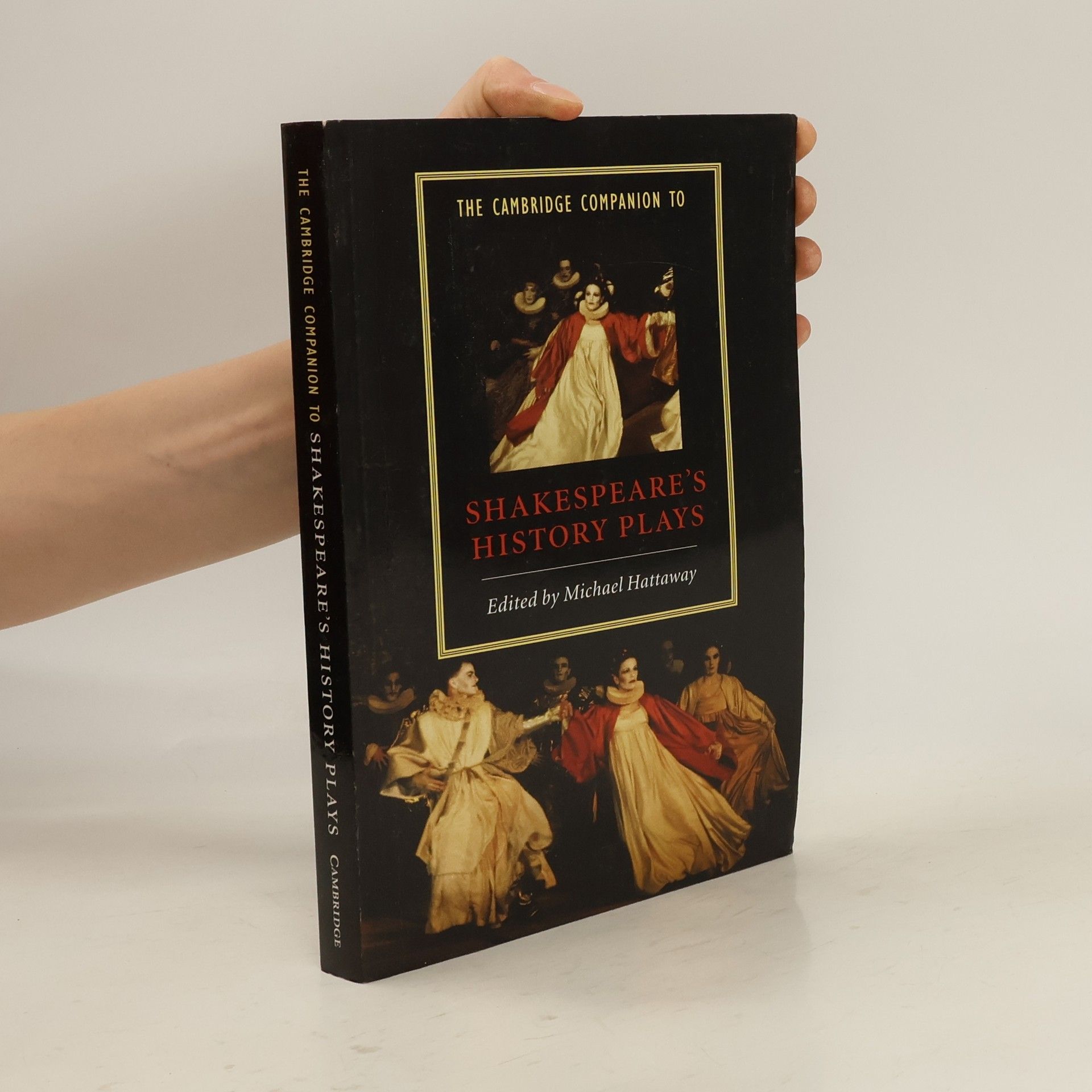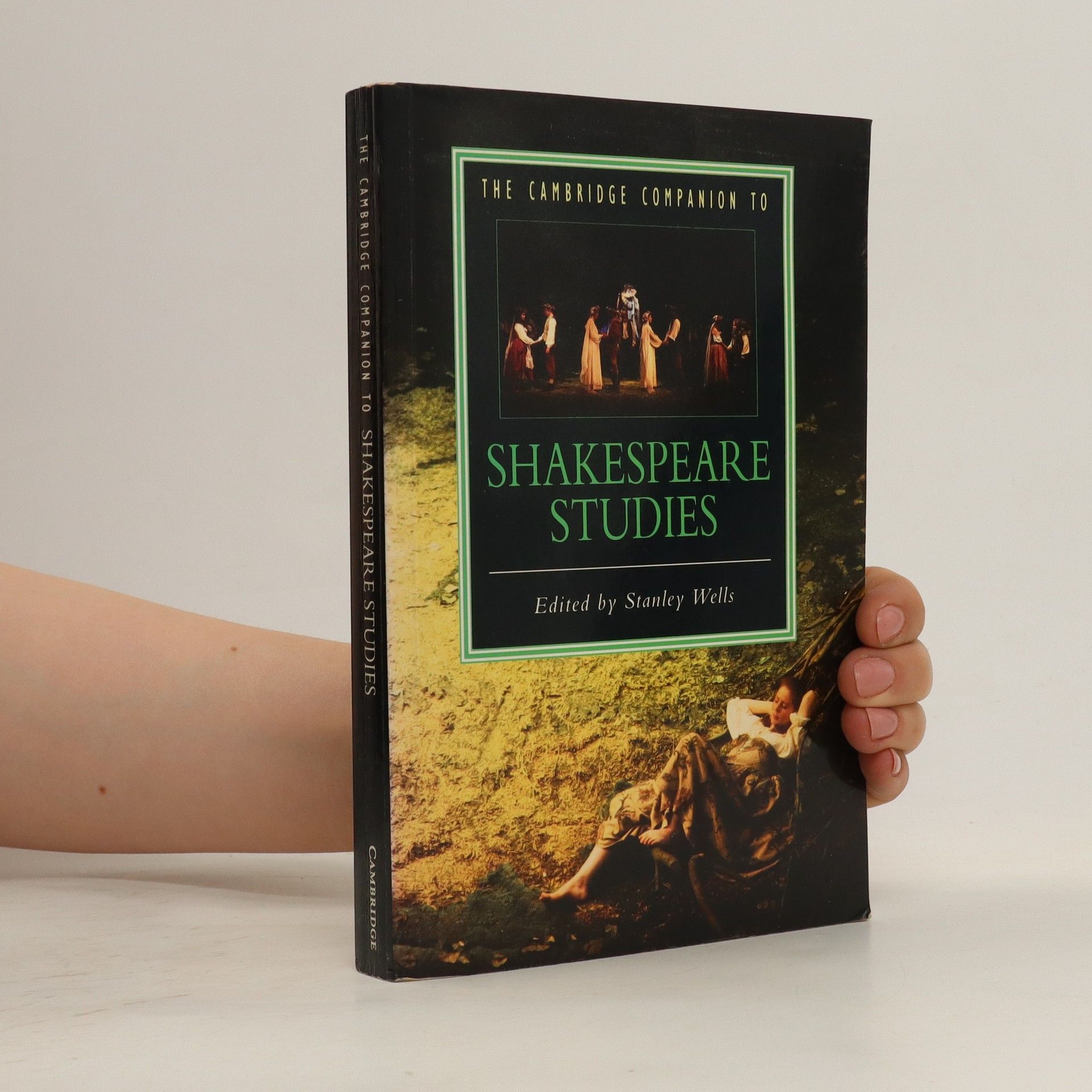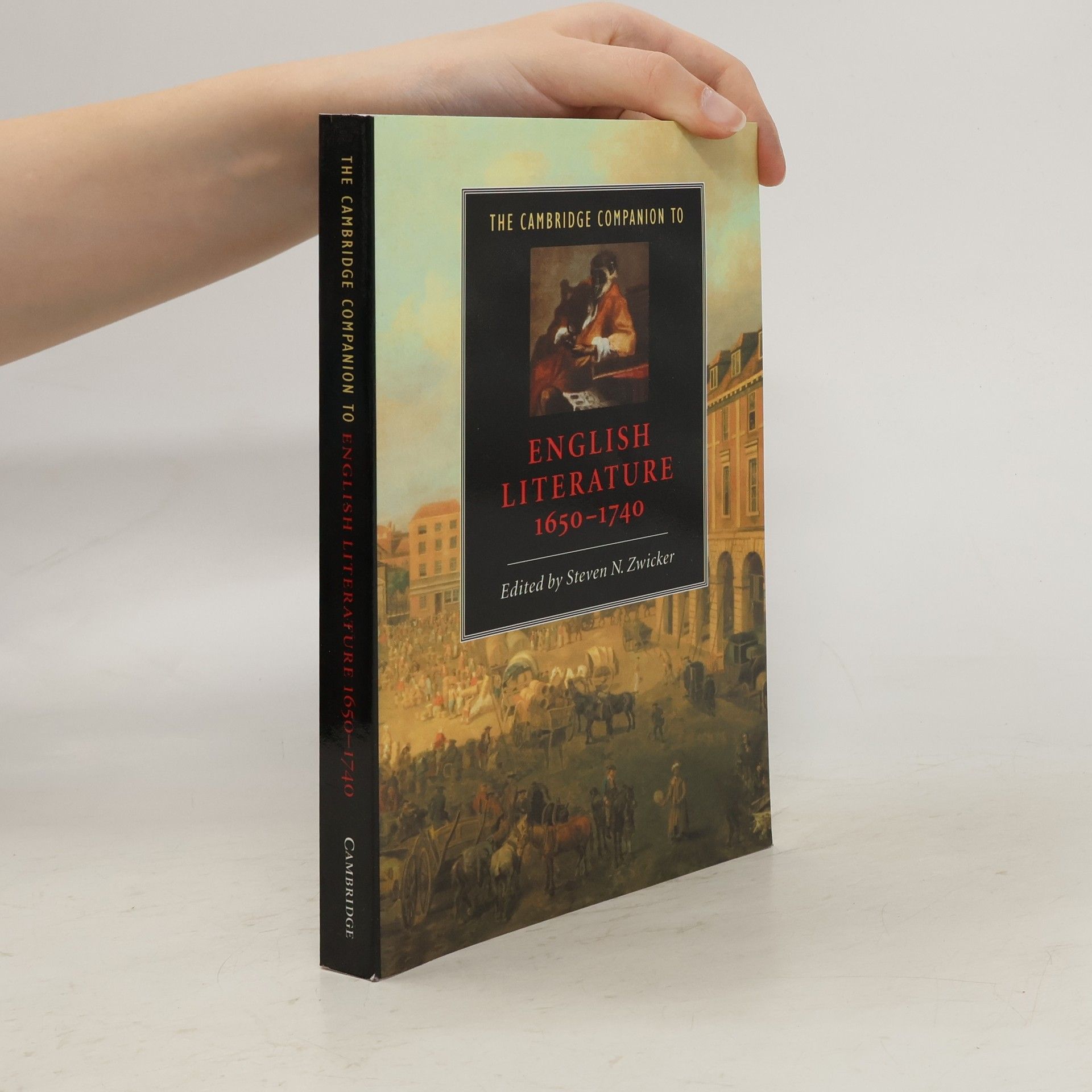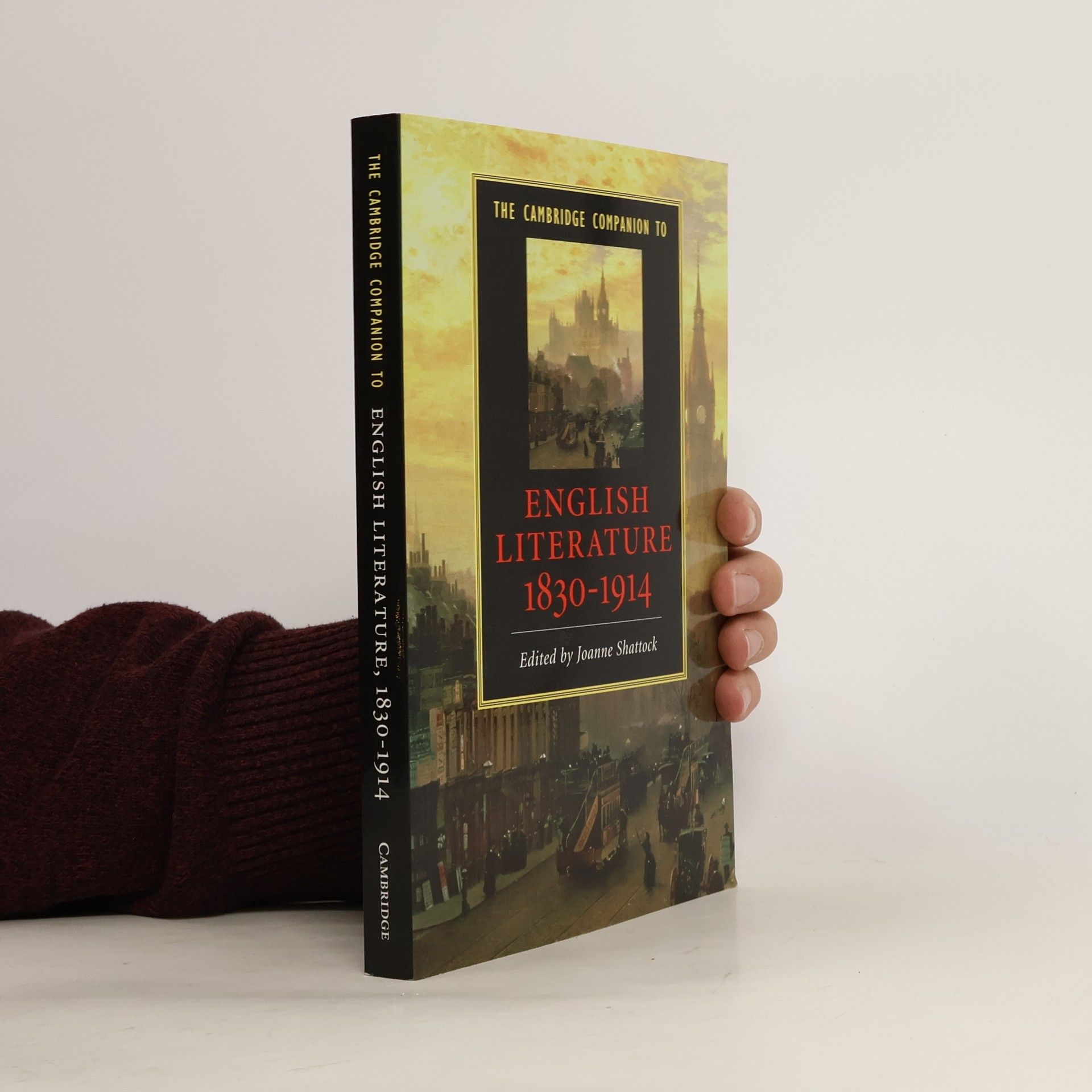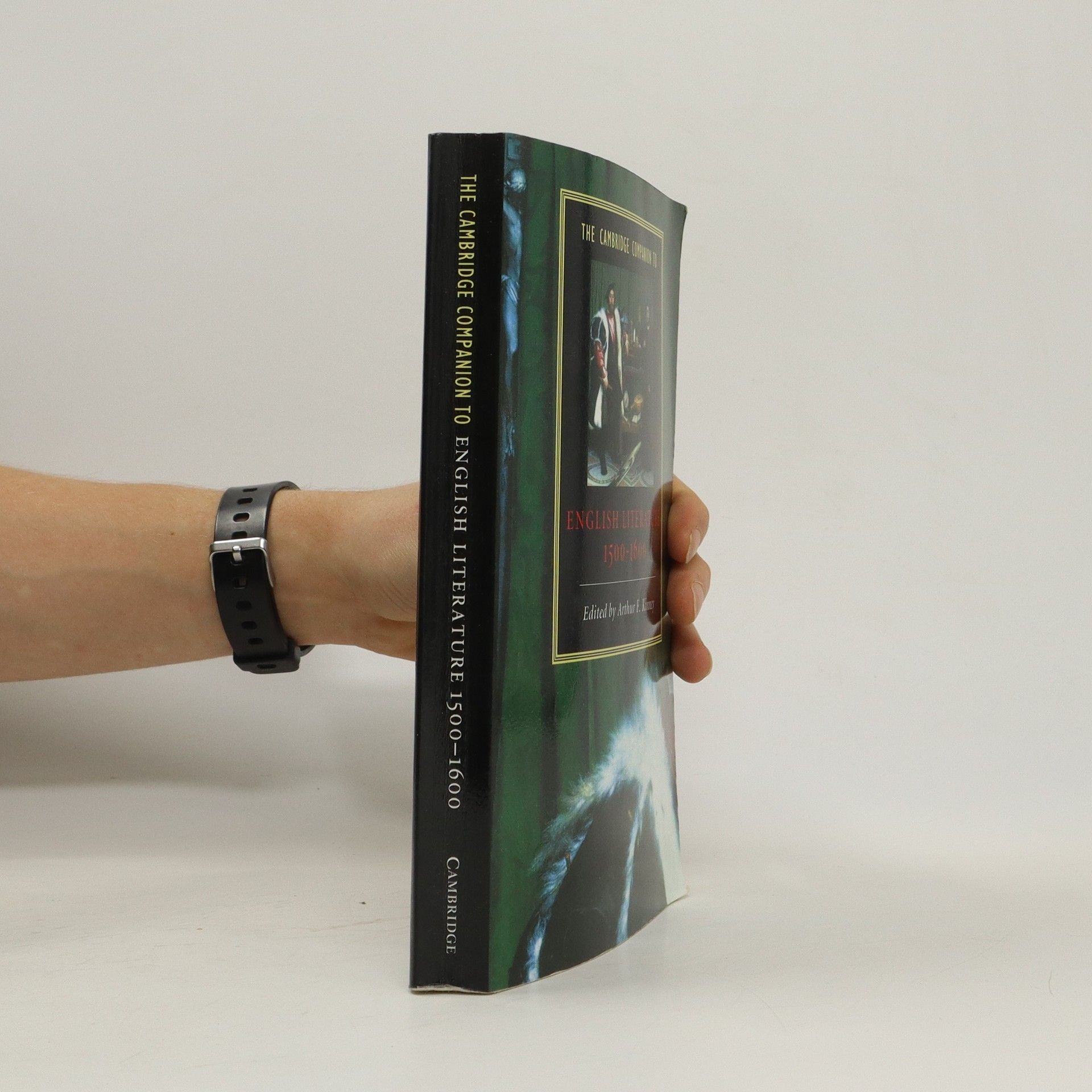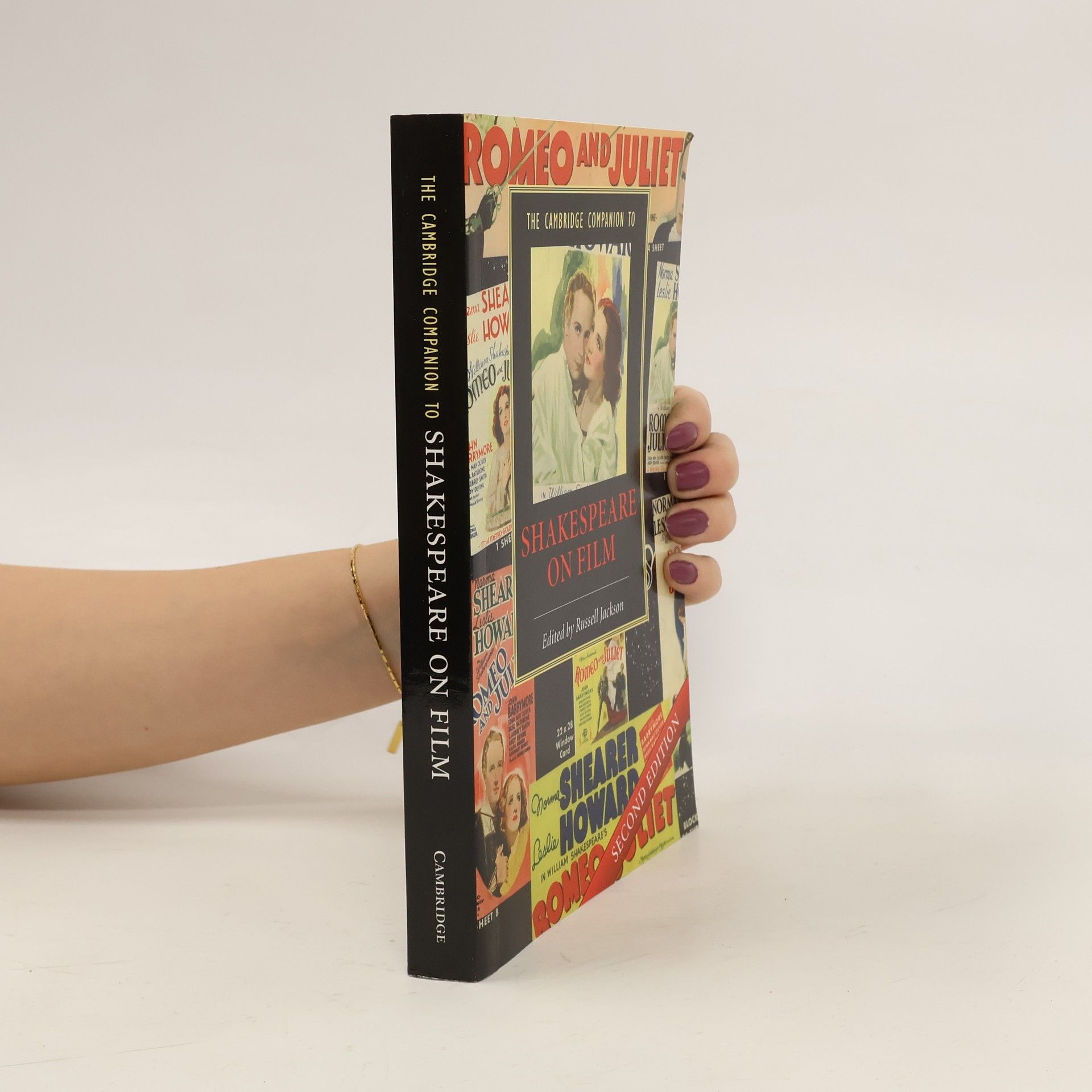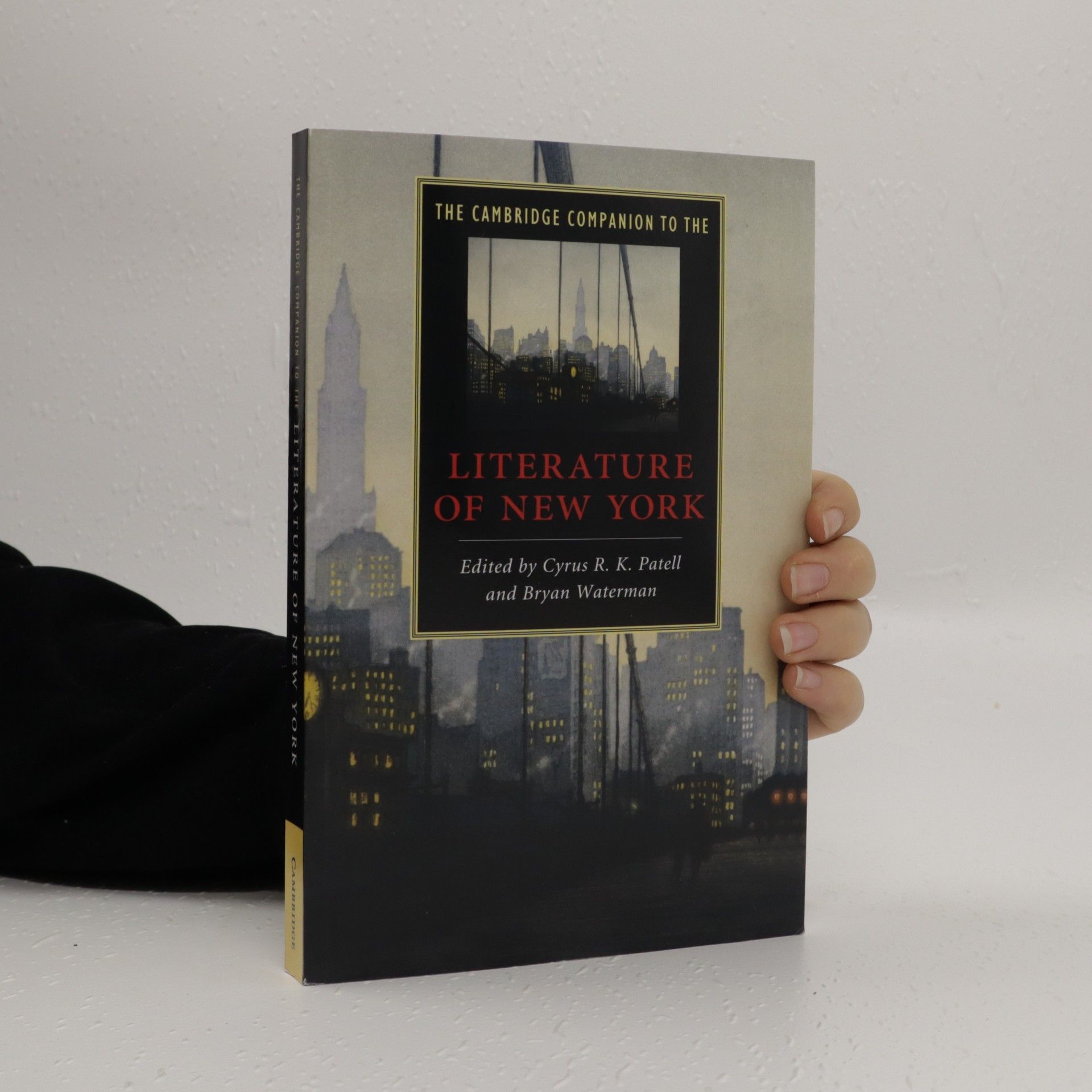A vivid portrait of this extraordinary thinker, assessing his place in Western thought since the Renaissance.
Cambridge Companions alla LetteraturaSerie
Questa serie offre introduzioni vivaci e accessibili a scrittori, artisti, filosofi, argomenti e periodi importanti nelle discipline umanistiche. Ogni volume presenta saggi appositamente commissionati che forniscono diversi punti di vista e un resoconto critico sistematico del suo soggetto. Progettati per attrarre sia studenti che lettori generici, questi accompagnamenti spesso includono caratteristiche utili come cronologie e guide per ulteriori letture. La serie mira a fornire una panoramica completa stimolando al contempo dibattiti coinvolgenti e controversi.






Ordine di lettura consigliato
The Cambridge Companion to Shakespeare's Poetry
- 316pagine
- 12 ore di lettura
A volume of essays by leading Shakespearean scholars on Shakespeare's poetry, including the Sonnets.
The Cambridge Companion to Don Delillo
- 218pagine
- 8 ore di lettura
The book provides a comprehensive exploration of the works and career of a prominent postmodern American author known for influential novels such as White Noise and Underworld. It delves into the themes, styles, and cultural impact of his writing, highlighting his contributions to contemporary literature and the evolution of his narrative techniques. Through critical analysis, the overview sheds light on the author's unique voice and the significance of his work in the postmodern literary landscape.
The Companion provides an introduction to the relationship between law and literature in medieval England. It will be of interest to advanced students and scholars of literature, history and culture in the Anglo-Saxon, medieval and Tudor periods. Scholars will also appreciate the surveys and discussions of literary uses of legal motifs.
Using a combination of historical and thematic approaches, this volume engages with the fascinating and complex genre of utopian literature.
A fully updated 2007 edition of this useful and accessible coursebook on Dante's works, context and reception history.
This second edition, including some new chapters, provides an essential introduction to all aspects of George Eliot's life and writing. Accessible essays by some of the most distinguished scholars of Victorian literature provide lucid and often original insights into the work of one of the most important novelists of the nineteenth century.
This Companion casts post-1945 American poetry as a coherent literary movement, making the period's most difficult offerings comprehensible and accessible.
The Cambridge Companion to the Literature of Berlin
- 302pagine
- 11 ore di lettura
This book provides an informative overview of literary developments in Berlin since 1750, with more detailed readings of exemplary key texts.
This Companion is a comprehensive and interdisciplinary appraisal of the modernist movement, with contributions from fourteen leading scholars.
The Cambridge Companion to Literature and the Posthuman
- 266pagine
- 10 ore di lettura
This book gathers together contributions from fifteen scholars of diverse critical treatments of the posthuman and posthumanism in the first work of its kind. It explores historical and aesthetical dimensions of the posthuman figure in literature, film and culture, alongside posthumanism as a discourse in a wide range of fields.
Twenty-one essays provide lively and authoritative approaches to the literary, historical, cultural and performative aspects of Shakespeare works.
The Cambridge Companion to British Fiction since 1945
- 264pagine
- 10 ore di lettura
The Cambridge Companion to British Fiction since 1945 provides insight into the critical traditions shaping the literary landscape of modern Britain.
The Cambridge Companion to 'Emma'
- 243pagine
- 9 ore di lettura
This essay collection by leading scholars provides a comprehensive guide to Jane Austen's Emma, one of the greatest English novels.
This Companion presents new essays covering the one hundred and fifty year history of the African American novel.
This volume compiles essays from scholars and practitioners exploring science fiction's intersection with various fields. It covers the genre's history, critical theories like Marxism and feminism, and themes such as race and gender. Contributions come from notable writers, providing a comprehensive analysis of science fiction.
Introduction Steven Meyer; Part I. Glimpses of Present and Future: Literature and Science Studies: 1. Science fiction to science studies Isabelle Stengers; Part II. Snapshots of The Past: Literature and Science: 2. Shakespeare and modern science Mary Baine Campbell; 3. Darwin and literature Devin Griffiths; 4. William James, Henry James, and the impact of science Joan Richardson; 5. Empson's Einstein: science and modern reading Kitt Price; Part III. In Theory: Literary Studies and Science Studies: 6. Science studies and literary theory Hugh Crawford; 7. From writing science to digital humanities Haun Saussy and Tim Lenoir; 8. Science studies as cultural studies James J. Bono; 9. Reading affect: literature and science after Klein and Tomkins Adam Frank; Part IV. In Practice: Literary Studies and Science: 10. The global turn: Thoreau and the sixth extinction Wai Chee Dimock; 11. Literary studies and cognitive science Alan Richardson; 12. Modernism, technology, and the life sciences Tim Armstrong; 13. The long history of cognitive practices: literacy, numeracy, aesthetics Reviel Netz; Futures past and present: literature and science in an age of Whitehead Steven Meyer.
An essential introduction and handbook for students and other readers of T. S. Eliot.
An invaluable guide to the works of Flaubert, including a chronology and suggestions for further reading.
The Cambridge Companion to Camus
- 248pagine
- 9 ore di lettura
Albert Camus is one of the iconic figures of twentieth-century French literature. This 2007 Companion explores his best-selling novels, his ambiguous engagement with philosophy, his theatre, his work as a journalist and his reflections on ethical and political questions that continue to concern readers today.
Lyrical Ballads is a text of huge cultural and literary significance. The cornerstone of British Romantic poetry, it is a must-read for any student of this subject. These accessible essays provide essential contexts and critical approaches, enabling students to find fresh ways of understanding and responding to the volume.
This volume of specially-commissioned essays provides introductions to all aspects of George Eliot's writing. schovat popis
This collection of fifteen essays offers a guide to the work of Tom Stoppard, including insights into the recent plays, Arcadia and Invention of Love, as well as his co-authored, academy award-winning screenplay Shakespeare in Love. The volume also contains photographs from key productions, a biography and chronology. schovat popis
The Cambridge Companion to Fairy Tales
- 272pagine
- 10 ore di lettura
An international team of scholars explores the historical origins, cultural dissemination and continuing literary and psychological power of fairy tales.
The Cambridge Companion to English Poetry, Donne to Marvell
- 340pagine
- 12 ore di lettura
English poetry in the first half of the seventeenth century is an outstandingly rich and varied body of verse, which can be understood and appreciated more fully when set in its cultural and ideological context. This student Companion, consisting of fourteen new introductory essays by scholars of international standing, informs and illuminates the poetry by providing close reading of texts and an exploration of their background. There are individual studies of Donne, Jonson, Herrick, Herbert, Carew, Suckling, Lovelace, Milton, Crashaw, Vaughan and Marvell. More general essays describe the political and religious context of the poetry, explore its gender politics, explain the material circumstances of its production and circulation, trace its larger role in the development of genre and tradition, and relate it to contemporary rhetorical expectation. Overall the Companion provides an indispensable guide to the texts and contexts of early-seventeenth-century English poetry.
In The Cambridge Companion to Mary Shelley, leading scholars discuss her work in several fascinating contexts. schovat popis
Edward Gibbon's monumental The History of the Decline and Fall of the Roman Empire is of enduring interest to literary scholars, classicists and historians of the ancient world. This Companion provides an accessible account of Decline and Fall, along with Gibbon's autobiographical writings: an indispensable guide to the great historian and his work.
The Cambridge Companion to Greek Comedy
- 522pagine
- 19 ore di lettura
This book provides a unique panorama of this challenging area of Greek literature, combining literary perspectives with historical issues and material culture.
Essays by leading scholars explore the works of the three Bronte sisters.
The Cambridge Companion to J. M. Coetzee
- 332pagine
- 12 ore di lettura
This Companion introduces readers to the writings of Nobel Laureate J. M. Coetzee. It provides a compelling introduction for new readers, as well as fresh perspectives and provocations for those long familiar with Coetzee's works, including his novels, autobiographical fictions, translations, scholarly books, and volumes of correspondence.
The New Cambridge Companion to Samuel Beckett
- 266pagine
- 10 ore di lettura
Written by a team of renowned scholars, The New Cambridge Companion to Samuel Beckett presents a continuum in Beckett studies ranging from theoretical approaches to performance studies, from manuscript research to the study of bilingualism. The emphasis on burgeoning critical approaches aids the reader's understanding of recent developments while prompting further exploration.
The Cambridge Companion to Queer Studies
- 276pagine
- 10 ore di lettura
This Companion provides a guide to queer inquiry in literary and cultural studies. The essays gathered here represent work in queer studies in the vital present, suggesting new and emerging areas, including transgender studies. It will appeal to undergraduates, tutors, and lecturers studying and teaching Queer Studies.
The Cambridge Companion to George Orwell
- 218pagine
- 8 ore di lettura
This 2007 Companion is a collection of essays on the life and works of George Orwell.
A comprehensive critical account of Margaret Atwood's novels, short stories, poetry, and essays.
The Cambridge Companion to Shakespeare and Religion
- 324pagine
- 12 ore di lettura
This Companion provides an essential grounding in early modern religious culture and the ideas that Shakespeare returned to throughout his career. Focused close-readings of individual plays explore the variegated Christian contexts of Shakespeare's work, as well as the treatment of Judaism, Islam and classical paganism.
Cambridge Companions to Literature
- 246pagine
- 9 ore di lettura
This is the most comprehensive account available of the work of one of the great writers of the twentieth century, by internationally renowned specialists. It includes chapters on Jorge Luis Borges's literary evolution, his hugely influential short stories, and on the extraordinary diversity of his literary themes and interests.
A state-of-the-field review of critical perspectives on the work of Anthony Trollope.
The Cambridge Companion to English Renaissance Tragedy
- 294pagine
- 11 ore di lettura
Introducing the reader to important topics in English Renaissance tragedy, this Companion presents fresh readings of key texts.
Narrative theory explores how stories work and how we make them work. This Companion is both an introduction and a substantial contribution to the field. It takes the long historical view, outlines essential concepts, and reflects on the way narrative forms connect with and rework social forms.
The Cambridge Companion to Ian McEwan
- 243pagine
- 9 ore di lettura
This volume offers a sense of McEwan's standing in the canon on international contemporary fiction, and enriches understanding of McEwan's work by presenting complementary perspectives on the most complex novels. It will be a key resource for students, graduates, and scholars studying and teaching Ian McEwan.
The Cambridge Companion to Harold Pinter provides an introduction to one of the world's leading and most controversial writers, whose output in many genres and roles continued to grow until the author's death in 2008. Harold Pinter, winner of the 2005 Nobel Prize for Literature, produced work for the theatre, radio, television and screen, in addition to being a highly successful director and actor. This volume examines the wide range of Pinter's work (including his recent play Celebration). The first section of essays places his writing within the critical and theatrical context of his time, and its reception worldwide. The Companion moves on to explore issues of performance, with essays by practitioners and writers. The third section addresses wider themes, including Pinter as celebrity, the playwright and his critics, and the political dimensions of his work. The volume offers photographs from key productions, a chronology, checklist of works and bibliography.
The Cambridge Companion to Goethe provides a stimulating and accessible survey of this versatile figure.
The Cambridge Companion to Literature and Food
- 312pagine
- 11 ore di lettura
This Companion provides an engaging and expansive overview of gustation, gastronomy, agriculture and alimentary activism in literature from the medieval period to the present day. It rethinks literary food from a variety of critical angles, including gender and sexuality, race studies, postcolonial studies, eco-criticism and children's literature.
This collection of thirteen original essays covers Williams's work from the early apprenticeship years in the 1930s to his last play before his death in 1983.
The Cambridge Companion to Narrative
- 328pagine
- 12 ore di lettura
The Cambridge Companion to Narrative provides a unique and valuable overview of current approaches to narrative study.
A revised and fully updated edition, featuring five new chapters reflecting recent scholarship on Woolf.
The Cambridge Companion to the Latin American Novel
- 358pagine
- 13 ore di lettura
Novels from Spanish and Portuguese-speaking Latin America are read in translation all over the world. This Companion offers a broad overview of the novel's history and analyzes in depth several representative works by, for example, Gabriel Garcia Marquez, Machado de Assis, Isabel Allende and Mario Vargas Llosa. Indispensable to students of Latin American studies, of comparative literature and of the development of the novel as genre, the book features a comprehensive bibliography and chronology and concludes with an essay about the success of Latin American novels in translation.
This 2002 volume provides an accessible, wide-ranging and informed introduction to Shakespeare's history and Roman plays. It offers chapters on the individual plays as well as accounts of the genre of the history play and includes genealogical tables and a list of principal and recurrent characters.
The Cambridge Companion to Sylvia Plath
- 208pagine
- 8 ore di lettura
An authoritative guide to Plath's work, her importance to contemporary literature and culture, and the controversies that surround her.
The Cambridge Companion to Shakespeare's Language
- 320pagine
- 12 ore di lettura
This book explores the joys and difficulties of Shakespeare's intricate language, offering insights for students, educators, actors, and theater enthusiasts alike.
The Cambridge Companion to Travel Writing is a broad, specially commissioned introduction to travel writing in English between 1500 and the present. Five essays survey the period's travel writing; six more focus on areas of particular interest--Arabia, the Amazon, Ireland, Calcutta, the Congo and California, while the final three analyze some of the theoretical and cultural dimensions of this enigmatic, influential genre of writing. An extensive further reading list plus a detailed chronology are included.
The Cambridge Companion to Brecht
- 364pagine
- 13 ore di lettura
Updated edition of The Cambridge Companion to Brecht, introducing new voices and themes.
The Cambridge Companion to the Modern Gothic
- 290pagine
- 11 ore di lettura
This book explores the Gothic across literature, film, and cyberspace, revealing how it has proliferated since 1900 as an expression of modernity.
The Cambridge Companion to American Gothic
- 272pagine
- 10 ore di lettura
This Companion offers a thorough overview of the diversity of the American Gothic tradition from its origins to the present.
The Cambridge Companion to 'Dracula'
- 240pagine
- 9 ore di lettura
Notes on Contributors; Note on the Text; Chronology; Introduction Roger Luckhurst; Part I. Dracula in the Gothic Tradition: 1. Dracula's Pre-History: The Advent of the Vampire Nick Groom; 2. Dracula's Debts to the Gothic Romance William Hughes; 3. Dracula and the Late Victorian Gothic Revival Alex Warwick; Part II. Contexts: 4. Dracula and the Occult Christine Ferguson; 5. Dracula and Psychology Roger Luckhurst; 6. Dracula and Sexology Heike Bauer; 7. Dracula in the Age of Mass Migration David Glover; 8. Dracula and the East Matthew Gibson; 9. Dracula's Blood Anthony Bale; 10. Dracula and Women Carol Senf; Part III. New Directions: 11. Dracula Queered Xavier Aldana Reyes; 12. Dracula and New Horror Theory Mark Blacklock; 13. Transnational Draculas Ken Gelder; Part IV. Adaptations: 14. Dracula on Stage Catherine Wynne; 15. Dracula on Film 1931-1959 Alison Peirse; 16. Dracula on Film and TV, 1960 to present Stacey Abbott; Guide to Further Reading; Index
The Cambridge Companion to Shakespeare's First Folio
- 218pagine
- 8 ore di lettura
An international team of scholars covers every aspect of one of the most famous books in the English language.
The Companion provides a new perspective on Russian literary and cultural development. The contributors present recent scholarship on historical and cultural contexts of twentieth-century literature, and situate the most influential individual authors within these contexts, including Boris Pasternak, Alexander Solzhenitsyn, Joseph Brodsky, Osip Mandelstam, Mikhail Bulgakov and Anna Akhmatova.
The Cambridge Companion to Shakespeare Studies offers a comprehensive introduction to the study of Shakespeare in a series of essays specially written by an international team of eminent scholars. Studies of Shakespeare's life, and of his relationship to the thought of his time, are followed by essays connecting his writings to the literary, dramatic, and theatrical conventions of his age. There are accounts of the transmission of his text, and of the theatrical and critical fortunes of his plays from his own time to ours. Particular attention is given to the twentieth century in studies of criticism, theatre history, the plays on film and television, new critical approaches, and reference books. Each essay is followed by a reading list. A successor to Cambridge's original Companion to Shakespeare Studies (1934) and the New Companion to Shakespeare Studies (1971) this attractively written and helpfully organized volume will be an indispensable companion to anyone with a serious interest in Shakespeare.
This Companion covers British and American crime fiction from the eighteenth century to the end of the twentieth.
The Cambridge Companion to Edith Wharton offers fresh examinations of Wharton's fiction designed both to engage the interest of the student or general reader encountering Wharton for the first time, and to be valuable to advanced scholars looking for new insights into her creative achievement.
The Cambridge Companion to French Literature
- 299pagine
- 11 ore di lettura
A fresh and comprehensive account of the literature of France, from medieval romances to twenty-first-century experimental poetry and novels.
The Cambridge Companion to American Travel Writing
- 301pagine
- 11 ore di lettura
A stimulating overview of American journeys from the eighteenth century to the present.
The Cambridge Companion to Alexander Pope
- 276pagine
- 10 ore di lettura
The first student book available on Pope and his life and times.
The Cambridge Companion to Shakespeare's History Plays
- 304pagine
- 11 ore di lettura
This book offers a comprehensive introduction to Shakespeare's history and Roman plays, making it accessible for readers of all backgrounds. It explores the thematic and historical contexts of these works, providing insights into their significance and impact. With a wide-ranging approach, it delves into the intricacies of Shakespeare's storytelling, character development, and the cultural influences that shaped his writing. Ideal for both newcomers and seasoned enthusiasts, it enhances understanding of these classic plays.
The Cambridge Companion to Shakespeare's Language
- 320pagine
- 12 ore di lettura
The Companion uses accessible approaches and practical examples to help readers engage pleasurably with Shakespeare's challenging language. It will appeal to upper level undergraduate and graduate students of Shakespeare and Renaissance literature and drama, as well as students of English language and the history of language.
Covering sonnets as diverse as those by Dante, Shakespeare and e. e. cummings, distinguished scholars and poets discuss this major poetic form as a global and multimedia phenomenon. A fresh and authoritative overview, the Companion expertly guides the reader through the sonnet's history and development.
The Cambridge companion to English literature, 1650-1740
- 358pagine
- 13 ore di lettura
This volume offers an account of English literary culture in one of its most volatile moments, when literature was enmeshed with the extremes of social, political and sexual experience. Newly-commissioned essays make use of current critical perspectives in order to offer new insight into the literature of Restoration and early eighteenth-century England in all its variety, from vitriolic satire to heroic verse. The volume's chronologies and select bibliographies will guide the reader through texts and events, while the fourteen essays commissioned for this Companion will allow us to read the period anew.
A wide-ranging survey of the most important medieval authors and genres, designed for students of English.
An overview of popular literature from the early nineteenth century to the present day from a historical and comparative perspective.
The nineteenth century witnessed unprecedented expansion in the reading public and an explosive growth in the number of books and newspapers produced to meet its demands. These specially commissioned essays examine not only the full range and variety of texts that entertained and informed the Victorians, but also the boundaries of Victorian literature: the links and overlap with Romanticism in the 1830s, and the roots of modernism in the years leading up to the First World War. The Companion demonstrates how science, medicine and theology influenced creative writing and emphasizes the importance of the visual in painting, book illustration and in technological innovations from the kaleidoscope to the cinema. Essays also chart the complex and fruitful interchanges with writers in America, Europe and the Empire, highlighting the geographical expansion of literature in English. This Companion brings together the most important aspects of this prolific and popular period of English literature.
The Cambridge Companion to Salman Rushdie
- 220pagine
- 8 ore di lettura
Salman Rushdie is a major contemporary writer, who engages with some of the vital issues of our times: migrancy, postcolonialism, religious authoritarianism. This Companion offers a comprehensive introduction to his entire oeuvre. Part I provides thematic readings of Rushdie and his work, with chapters on how Bollywood films are intertextual with the fiction, the place of family and gender in the work, the influence of English writing and reflections on the fatwa. Part II discusses Rushdie's importance for postcolonial writing and provides detailed interpretations of his fiction. In one volume, this book provides a stimulating introduction to the author and his work in a range of expert essays and readings. With its detailed chronology of Rushdie's life and a comprehensive bibliography of further reading, this volume will be invaluable to undergraduates studying Rushdie and to the general reader interested in his work.
The Cambridge Companion to Postcolonial Travel Writing
- 286pagine
- 11 ore di lettura
Towards a genealogy of postcolonial travel writing: an introduction Robert Clarke; Part I. Departures: 2. Postcolonial travel writing and postcolonial theory Justin D. Edwards; 3. Walk this way: postcolonial travel writing of the environment Jill Didur; 4. History, memory, and trauma in postcolonial travel writing Robert Clarke; Part II. Performances: 5. Diasporic 'returnees' and imagined homelands Srilata Ravi; 6. Diplomats as postcolonial travellers Eva- Marie Kröller; 7. The metropolitan journeys of Francophone postcolonial travellers Charles Forsdick; 8. African American travel writing Tim Youngs; 9. Seeking the sacred in postcolonial travel writing Asha Sen; 10. Contemporary postcolonial journeys on the trails of colonial travellers Christopher Keirstead; Part III. Peripheries: 11. Postcolonial travel journalism and the new media Brian Creech; 12. Travel magazines and settler (post)colonialism Anna Johnston; 13. Refugee and asylum seeker narratives as travel writing April Shemak; 14. Travellers in postcolonial fiction Stephen M. Levin; 15. Afterword Mary Louise Pratt.
Leading scholars present the genre of Latin love elegy, its poets, features and influence on the history of Western literature.
The Cambridge Companion to German Romanticism
- 362pagine
- 13 ore di lettura
This Companion, first published in 2004, offers students and specialists an authoritative introduction to that dazzling cultural phenomenon, now known collectively as German Romanticism. All German quotations are translated to make this volume fully accessible to a wide audience interested in how Romanticism evolved across Europe.
The Cambridge Companion to Gay and Lesbian Writing
- 272pagine
- 10 ore di lettura
In the last two decades, lesbian and gay studies have transformed literary studies. The Cambridge Companion to Gay and Lesbian Writing introduces readers to important concepts, methods and cultural and historical debates relevant to the study of sexuality and literature.
The Cambridge Companion to Modern British Women Playwrights
- 298pagine
- 11 ore di lettura
Focusing on the contributions of women playwrights in Britain during the twentieth century, this book explores their significant yet often overlooked impact on theater. It delves into the themes, styles, and societal influences that shaped their works, highlighting the evolution of female voices in a predominantly male-dominated field. Through critical analysis, it reveals how these playwrights challenged conventions and paved the way for future generations, offering a comprehensive look at their artistic legacies.
A lively overview of the current state and development of the field, including suggestions for further reading.
The Cambridge Companion to Dante's 'Commedia'
- 326pagine
- 12 ore di lettura
A comprehensive and informative account of Dante's masterpiece, the Commedia, in essays by leading scholars. Chapters cover the main themes and motifs of the poem, its handling of narrative and literary matters, its cultural context, and its hugely influential afterlife, through textual transmission and readers' responses over the centuries.
The Cambridge Companion to Medieval English Mysticism
- 340pagine
- 12 ore di lettura
This book is an excellent, insightful introduction to medieval English mystical texts, their authors, readers and communities. Featuring a guide to further reading and a chronology, the Companion offers an accessible overview for students of literature, history and theology.
This Companion provides a compelling, comprehensive, and substantive introduction to the work of David Foster Wallace, one of the most important American writers of the contemporary era. The essays within, written by top scholars in the field, will appeal both to the beginning and the more sophisticated Wallace reader.
A fully updated edition of this popular Companion, with two new essays reflecting new developments in the field.
The Cambridge Companion to Shakespearean Tragedy
- 321pagine
- 12 ore di lettura
This updated Companion has been fully revised and includes an extensively overhauled bibliography and four new chapters by leading scholars.
The Cambridge Companion to Modern American Poetry
- 304pagine
- 11 ore di lettura
The Cambridge Companion to Modern American Poetry offers a critical overview of major and emerging American poets of the twentieth century.
Twelve commissioned essays provide an essential introduction to Thomas Hardy.
The Cambridge Companion to W. B. Yeats
- 262pagine
- 10 ore di lettura
First-time readers of Yeats as well as more advanced scholars will welcome this comprehensive account of Yeats's career with its useful chronological outline and survey of the most important trends in Yeats scholarship as an essential introduction for students and teachers of Yeats.
The Cambridge companion to English literature, 1500-1600
- 363pagine
- 13 ore di lettura
The first comprehensive account of English Renaissance literature and the culture which shaped it.
Offers a rounded contemporary appraisal of Central Europe's most distinctive Modernist.
Film adaptations of Shakespeare's plays are increasingly popular and now figure prominently in the study of his work and its reception. This Companion is a lively collection of critical and historical essays on the films adapted from, and inspired by, Shakespeare's plays. Chapters have been revised and updated from the first edition to include the most recent films and scholarship. An international team of leading scholars discuss Shakespearean films from a variety of perspectives: as works of art in their own right; as products of the international movie industry; and as the work of particular directors from Laurence Olivier and Orson Welles to Franco Zeffirelli and Kenneth Branagh. They also consider specific issues such as the portrayal of Shakespeare's women and the supernatural. The emphasis is on feature films for cinema, rather than television, with strong coverage of Hamlet, Richard III, Macbeth, King Lear and Romeo and Juliet.
Revised and updated to include Miller's late work and the key productions and criticism since the playwright's death in 2005.
This book traces the development of allegory in the European and American tradition from antiquity to the modern era. The essays explore allegory as a literary practice in poetry and fiction, as a technique of interpreting sacred and philosophical texts, and as an important element of modern literary theory.
This book re-examines the crucial trends in the decade and places them in their political and economic contexts. It is addressed to undergraduates, graduates and scholars interested in learning more about American literature in the 1930s.
The Cambridge Companion to International Theatre Festivals
- 320pagine
- 12 ore di lettura
Presents an up-to-date, contextualized account of the global reach and impact of the 'festivalization' of culture. It analyses festivals as sites of intercultural negotiation and exchange and reveals their role in Africa, Asia, Australia, the Arab world, Europe and the Americas.
This Companion is an accessible exploration of Sherlock Holmes and his relationship to late-Victorian culture as well as his significance and popularity. Readings of selected Holmes adventures explore the development of detective fiction and Victorian publishing alongside themes of gender, Englishness, law, criminality, adaptation and fandom.
The Cambridge Companion to Seneca
- 378pagine
- 14 ore di lettura
This Companion examines the complete works of Seneca in context and establishes the importance of his legacy in Western thought.
New York holds a special place in America's national mythology as both the gateway to the USA and as a diverse, vibrant cultural center distinct from the rest of the nation. From the international atmosphere of the Dutch colony New Amsterdam, through the expansion of the city in the nineteenth century, to its unique appeal to artists and writers in the twentieth, New York has given its writers a unique perspective on American culture. This Companion explores the range of writing and performance in the city, celebrating Herman Melville, Walt Whitman, Edith Wharton, Eugene O'Neill, and Allen Ginsberg among a host of authors who have contributed to the city's rich literary and cultural history. Illustrated and featuring a chronology and guide to further reading, this book is the ideal guide for students of American literature as well as for all who love New York and its writers.
The Cambridge Companion to American Poets
- 486pagine
- 18 ore di lettura
This Companion brings together essays on some fifty-four American poets, from Anne Bradstreet to contemporary performance poetry.
In the Companion to the Victorian Novel, first published in 2000, a series of specially-commissioned essays examine the work of Charles Dickens, the Brontes, George Eliot and Wilkie Collins. Contributors engage with topics such as industrial culture, religion, science, sexuality and race. The Companion includes a chronology and a comprehensive guide to further reading. schovat popis
The Cambridge Companion to the Graphic Novel
- 244pagine
- 9 ore di lettura
This Companion examines the evolution of comic books into graphic novels and the development of this art form globally.
Key dimensions of Dostoevskii's writing and life are explored in this collection of specially commissioned essays. The essays are well supported by supplementary material including a chronology of Dostoevskii's life and detailed guides to further reading. Altogether the volume provides an invaluable resource for scholars and students.
This book provides an introduction to Victorian poetry, and will interest scholars and students alike.
